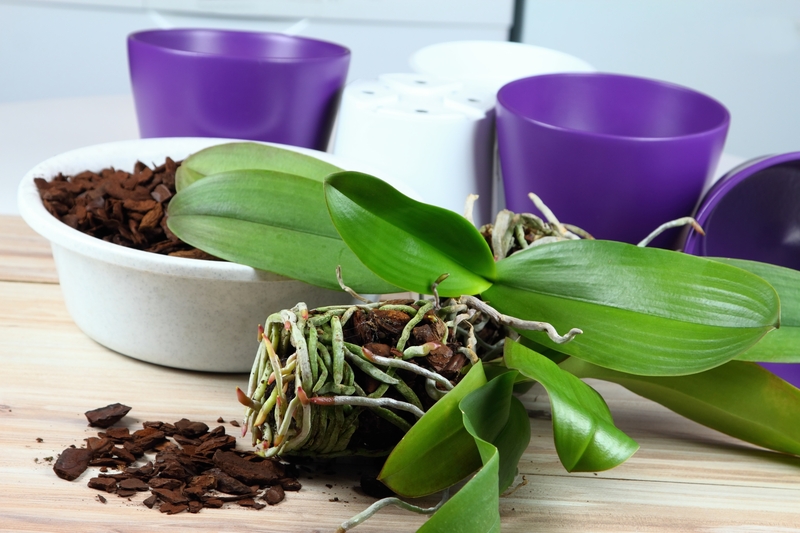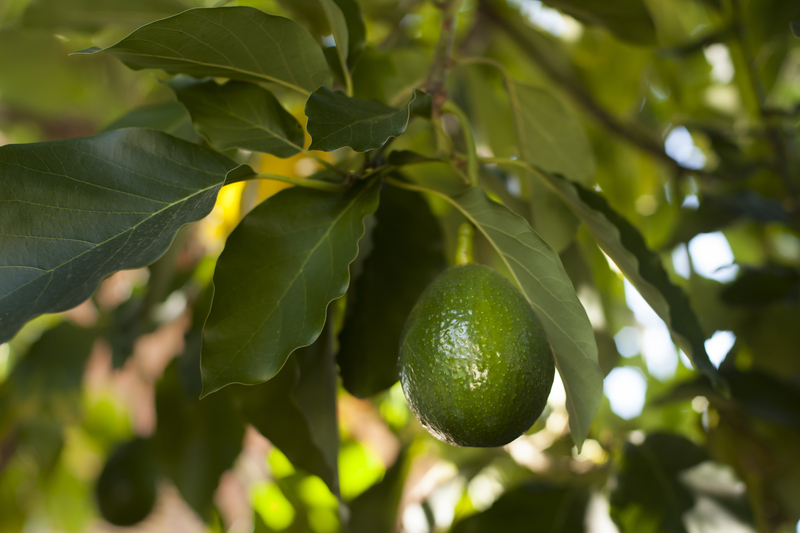Discover the Secrets of Gardening: 9 Tips for Beginners to Thrive
Posted on 23/09/2025
Discover the Secrets of Gardening: 9 Tips for Beginners to Thrive
Gardening is more than just a hobby--it's a rewarding activity that allows you to connect with nature, enjoy fresh produce, and create a soothing, beautiful environment right at home. Whether you're dreaming of a lush flower garden, a bountiful vegetable patch, or a quaint herb corner, understanding the basics is essential. In this comprehensive guide, you'll uncover the secrets of gardening and learn nine powerful tips for beginners to help your plants flourish and thrive.
Why Start Gardening?
Before diving into practical gardening tips, it's important to appreciate why so many people are drawn to this captivating endeavor. Gardening offers a host of benefits:
- Health and Wellness: Physical activity and exposure to nature can reduce stress and improve mood.
- Sustainability: Grow your own organic food and reduce your carbon footprint.
- Creativity: Personalize your garden space with colorful flowers and unique designs.
- Learning: Gardening teaches patience, responsibility, and a respect for the natural world.
*Whether you have a sprawling backyard or a cozy balcony, anyone can cultivate their green thumb with the right knowledge.*

1. Understand Your Gardening Space
The first secret of successful gardening is knowing your environment. Not every plant thrives in every location, so consider:
- Sunlight: Monitor how many hours of sun your garden receives daily. Most vegetables and many flowers prefer 6-8 hours of sunlight.
- Soil Quality: Test your soil to determine its type--clay, sand, silt, or loam. Good soil is typically loamy and rich in organic material.
- Space: Assess the available room. If you have limited space, try container gardening or vertical gardens.
By understanding your specific gardening environment, you can choose the right plants for your area and set realistic expectations for your garden's yield.
2. Choose the Right Plants for Beginners
One of the most frequent mistakes that novice gardeners make is selecting difficult or high-maintenance plants. Start your gardening journey with these beginner-friendly choices:
- Herbs: Basil, mint, parsley, and chives are fast-growing and great for small spaces.
- Leafy Greens: Lettuce, spinach, and kale are simple to grow and can be harvested multiple times.
- Marigolds: These cheerful flowers are hardy and deter pests in the garden.
- Tomatoes: With proper support and sunlight, tomatoes are rewarding and productive.
- Succulents: Perfect for indoor gardening, succulents require minimal water and care.
Pro tip: Visit your local garden center to discover which plants thrive in your region's climate and soil.
3. Invest in Essential Gardening Tools
You don't need a shed full of tools to start, but acquiring a few essentials will make gardening much easier and more enjoyable. For budding gardeners, consider these basic tools:
- Trowel: For digging small holes and transplanting seedlings.
- Pruners: Helpful for trimming plants and harvesting herbs and vegetables.
- Gloves: Protect your hands from thorns, dirt, and insects.
- Watering Can or Hose: Ensure your plants receive adequate moisture.
- Rake: For cleaning up fallen leaves and preparing soil beds.
Investing in quality gardening tools from the start can save time and reduce frustration as you learn the ropes.
4. Master the Art of Watering
Proper watering is one of the keys to unlocking the secrets of thriving gardens. Both overwatering and underwatering can harm your plants. To find the right balance:
- Check Soil Moisture: Stick your finger into the soil about one inch deep. If it feels dry, it's time to water.
- Water Early: Water your garden in the morning to reduce evaporation and prevent fungal diseases.
- Avoid Leaves: Water the soil, not the leaves, to avoid promoting mold and pests.
- Deep Watering: Water deeply but less often to encourage healthy root growth.
Smart watering practices ensure that your plants develop strong, drought-resistant roots and thrive throughout the growing season.
5. Feed Your Soil, Not Just Your Plants
Healthy plants start with healthy soil. Beginners often overlook this crucial aspect of successful gardening. Here's how to nurture your soil:
- Add Compost: Incorporate compost made from kitchen scraps, leaves, and yard debris to recycle nutrients back into your soil.
- Mulch: Apply a layer of mulch to retain moisture, regulate temperature, and suppress weeds.
- Rotate Crops: Change the location of vegetables each season to prevent soil depletion and disease.
- Natural Fertilizers: Use organic fertilizers like manure, bone meal, or fish emulsion for a nutrient boost.
Enriching your soil lays a strong foundation for your garden and reduces the need for chemicals or intensive plant care.
6. Protect Your Garden from Pests and Diseases
No garden is immune to pests or diseases, but being proactive can help gardeners minimize damage:
- Attract Beneficial Insects: Ladybugs and lacewings eat aphids and other pests.
- Companion Planting: Some plants, like marigolds and basil, naturally repel harmful insects.
- Inspect Regularly: Check for signs of pest damage or disease and act quickly.
- Natural Remedies: Use neem oil, insecticidal soap, or homemade garlic sprays to deter pests organically.
Integrated pest management ensures a healthy, chemical-free garden and helps your plants thrive organically.
7. Learn the Importance of Pruning and Deadheading
Pruning and deadheading might sound advanced, but they're simple techniques that lead to lush, blooming plants:
- Pruning: Remove dead or overgrown branches to promote airflow and redirect energy to healthy growth.
- Deadheading: Pinch off spent flowers to encourage more blooms throughout the season.
- Sanitize Tools: Always clean pruning shears to prevent spreading disease between plants.
Regular pruning keeps your garden looking tidy and boosts flower and fruit production.
8. Observe and Adapt Over Time
One of the best-kept secrets of gardening is patience and observation. Gardens are living, dynamic spaces, and successful gardeners are always learning. Take time to:
- Keep a Garden Journal: Record what you plant, where you plant it, and how it performs.
- Adapt Your Methods: If something isn't working, research alternatives and don't be afraid to experiment.
- Ask for Advice: Join local gardening clubs or online forums for support and inspiration.
- Celebrate Successes: Enjoy the journey and take pride in your growing skills!
Observation and flexibility are the heart of a truly thriving gardener.
9. Keep Gardening Fun and Rewarding
Gardening should be enjoyable and stress-free. Avoid burnout and frustration by:
- Starting Small: Grow a few plants at first and expand as your confidence builds.
- Mixing It Up: Try edible and ornamental plants together for a vibrant, beautiful space.
- Sharing the Experience: Get friends or family involved, or donate surplus harvest to local food banks.
- Enjoying the Results: Relax in your garden, savor homegrown veggies, and let your hard work inspire creativity.
Gardening is as much about the process as it is about the results. Savor every moment and embrace the learning curve!
Extra Tips for First-Time Gardeners
- Label Your Plants: Use tags to remember what & where you've planted.
- Be Mindful of Pets: Some plants are toxic to animals; choose wisely if you have furry friends.
- Consider the Seasons: Always check when to sow or transplant seeds in your zone.
- Stay Consistent: Regular care--even just a few minutes each day--makes a huge difference.

Frequently Asked Questions About Gardening for Beginners
What are the easiest vegetables for new gardeners?
Lettuce, radishes, beans, and peas are generally considered among the easiest for beginner gardeners. They grow quickly and require minimal care.
How can I start gardening if I don't have a backyard?
Container gardening is an excellent option! Use pots or vertical planters on a balcony, patio, or even indoors near a sunny window. Many herbs and vegetables, like tomatoes and lettuce, grow well in containers.
How do I prevent common gardening mistakes?
Start with simple plants, pay attention to watering and sunlight, use quality soil, and don't rush into planting too many things at once. Patience and research are key!
Can I garden organically as a beginner?
Yes! Focus on composting, natural fertilizers, and integrated pest management. Avoid synthetic chemicals, and choose disease-resistant plant varieties for a healthy organic garden.
How do I keep my plants healthy year-round?
Choose plants suitable for your climate and season, use mulch for temperature stability, and consider crop rotation or cover crops to keep soil healthy during the off-season.
Conclusion: Unlock the Secrets of Gardening and Let Your Garden Thrive
Gardening for beginners doesn't have to be intimidating. By starting small, choosing the right plants, and caring for your soil and environment, you'll unlock the secrets of a thriving garden. Each day spent nurturing your plants brings new discoveries--so don't be afraid to experiment, adapt, and celebrate your successes (and even your mistakes). With these nine practical tips, you're well on your way to experiencing the joy, beauty, and bounty that gardening has to offer. Happy gardening!
Latest Posts
Revamp Your Garden with 5 Low-Cost Low Maintenance Ideas
Discover the Secrets of Gardening: 9 Tips for Beginners to Thrive
Transform Your Outdoor Space with 3 Simple Weed Control Tips

